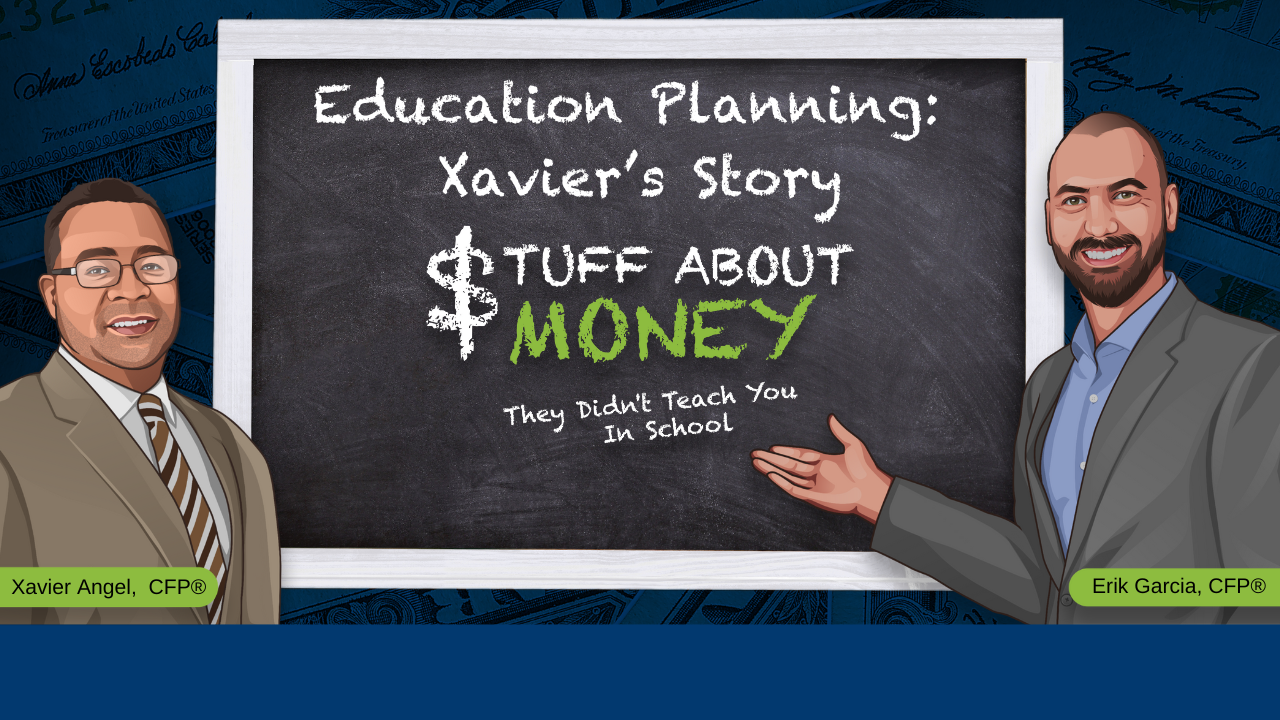Education Planning: Xavier’s Story

Education planning comes with many obstacles, like student loans, meal plans, housing… and, as some of you will come to find out, what happens after graduation.
Xavier Angel, CFP®, ChFC, CLTC, tells Erik Garcia, CFP®, BFA, his and his family’s story of having to financially plan for a recent college graduate. The two discuss values-based planning, moving complications, “working your way through college” and more in this latest installment of the stuff about money podcast.
Episode Highlights:
- Xavier discusses his personal experience with unforeseen costs that surfaced after his kids completed college, and how vital it is to prepare for such expenses. (2:22)
- Xavier explains the need to anticipate and plan for expenses within the first 6-12 months post-graduation, to help graduates start their new phase of life smoothly. (5:43)
- Erik shares insights on creating a financial plan for a unique gift for each child after college, emphasizing the necessity to plan for sudden costs. (8:46)
- Erik clarifies the concept of a “Work optional account”. (10:11)
- Erik mentions the importance of understanding one’s values before establishing goals and working toward them. (12:57)
- Erik discusses the advantages of consistent savings to tackle unexpected expenses. (15:01)
Key Quotes:
- “It’s those first six to twelve months that I think are important because those paychecks aren’t coming in right away. And there are added expenses that we have to plan for to help them get started.” – Xavier Angel, CFP®, ChFC, CLTC
- “If we’re saving money on a regular basis, if we had that strategy for saving money than a network optional account, we have options in there. So when that time comes, if I need money to purchase another car, if I need money for relocation, I have access to that money. I’m not stressed, because I’ve been saving over X amount of years to begin to have that liquidity in that freedom.” – Xavier Angel, CFP®, ChFC, CLTC
- “Once you understand your values, you can start to set goals forward, and you can start to set real deliberate behaviors to achieve those goals.” – Erik Garcia, CFP®, BFA
